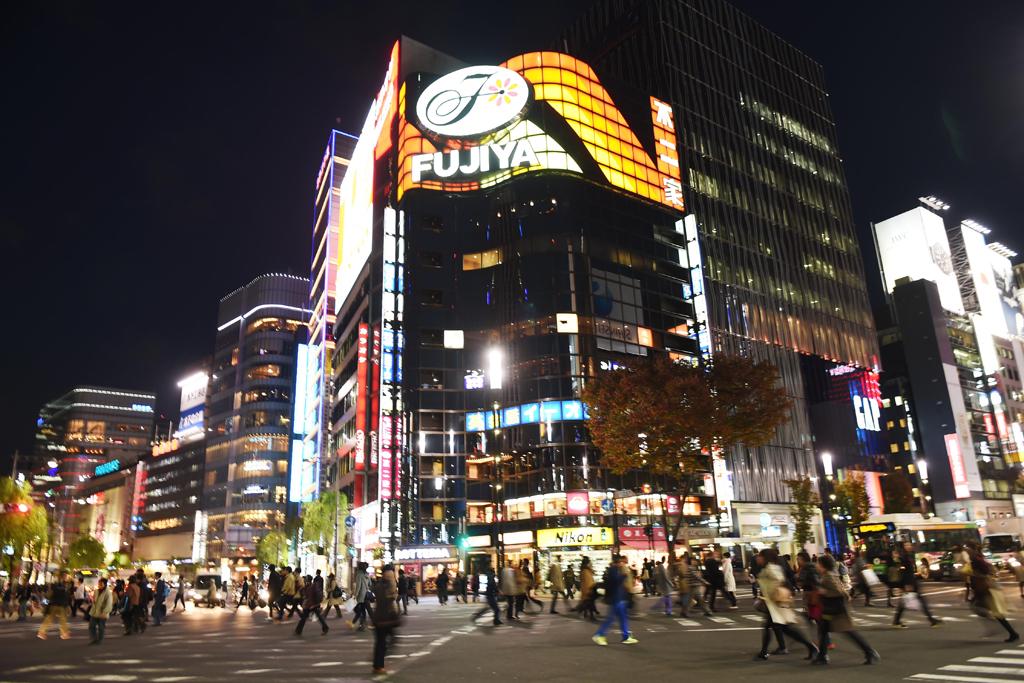Japanese PM Shinzo Abe dissolves parliament for ‘Abenomics’ snap election
Pedestrians cross a road on Nov. 21, 2014 in Tokyo, Japan.
Prime Minister Shinzo Abe dissolved parliament's lower house on Friday for a snap election on Dec. 14, seeking a fresh mandate for his struggling "Abenomics" revival strategy just two years after he returned to power promising that "Japan is Back."
Abe had vowed to revive the economy with a mix of hyper-easy monetary policy, government spending and reforms, while moving ahead with plans to rein in Japan's massive public debt.
But doubts have grown about his strategy, especially after data showed this week that the economy had surprisingly slipped into recession in the third quarter after an initial rise in the sales tax to 8 percent from April.
"This is an 'Abenomics' snap election. Will 'Abenomics' go forward, or stop in its tracks? That is the question in this election," Abe told a news conference. "Are our economic policies a mistake, or are they correct? Is there really any other way? This is what we want to ask all the people."
Abe has said he would delay for 18 months a second tax hike to 10 percent that had been slated for October 2015. He pledged that the second increase, which advocates say is needed to fund the bulging social security costs of a fast-ageing population, would go ahead in April 2017.
No general election needed to be held until late 2016, and surveys show around two-thirds of voters are wondering why Abe is taking the plunge now. "The whole reason is a bit unclear, or a bit trivial," said Yutaka Watanabe, a middle-aged tourist snapping a photo of the parliament building on Friday morning.
But the prime minister hopes to cement his grip on power before his support ratings slip too far. Next year, he plans to tackle unpopular policies such as restarting reactors that went off-line after the 2011 Fukushima nuclear crisis.
Trickle down or bottom up?
An Asahi newspaper poll published on Friday showed Abe's support fell to 39 percent — the lowest since he took office in December 2012 — and just a bit more than the 40 percent who do not back him.
Still, 37 percent said they would vote for Abe's Liberal Democratic Party (LDP) in proportional representation districts, compared with 13 percent who planned to vote for the main opposition Democratic Party of Japan (DPJ).
Thirty percent were undecided.
"Unfortunately, the DPJ has not recovered to a point where we can say to voters, 'Entrust the government to us'," DPJ Secretary General Yukio Edano told a news conference. The Democrats were trounced in 2012 after three years in power.
Edano said the DPJ wanted to give voters a choice between Abe's "trickle down" policies that critics say favour the rich and big firms, and the Democrats' "bottom up" strategy that focuses on the middle class.
Faced with a weak and divided opposition, the LDP and its junior partner, the Komeito party, are not expected to lose their majority in the lower house, where they held two-thirds of the 480 seats. There will be 475 seats up for grabs this time after reforms to rebalance between sparsely populated rural districts and dense urban areas.
Abe said he would resign if his coalition failed to win a majority, an outcome experts dismissed as almost impossible, though he could end up weakened if the LDP loses too many seats.
(Editing by Edmund Klamann, Dean Yates and Alex Richardson)
Every day, reporters and producers at The World are hard at work bringing you human-centered news from across the globe. But we can’t do it without you. We need your support to ensure we can continue this work for another year.
Make a gift today, and you’ll help us unlock a matching gift of $67,000!
